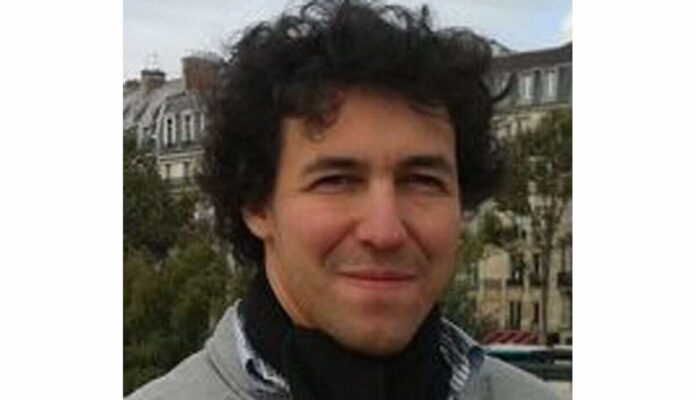In a development that could further strain the already tense relations between Russia and France, Russian authorities have arrested a French NGO worker, Laurent Vinatier on suspicion of espionage related to the country’s military activities. This incident has brought international attention and raised concerns about the broader implications for diplomatic relations and the treatment of NGO workers in conflict zones.
Allegations and Arrest
The individual in question, identified as Laurent Vinatier by the Centre for Humanitarian Dialogue (CHD), was detained at a café in Russia. The Russian authorities have accused Vinatier of engaging in the “targeted collection of information in the field of military-technical activities of the Russian Federation.” They allege that such information, if obtained by foreign entities, could be used against the security of the state. This arrest has led to the launch of a criminal case under Russia’s stringent laws concerning foreign agents.
According to the Russian law, any individual or entity receiving foreign support must register as a “foreign agent.” Violating this requirement carries severe penalties, including imprisonment. Vinatier, if convicted, faces up to five years in prison.
Profile of Laurent Vinatier
Laurent Vinatier is an adviser at the Centre for Humanitarian Dialogue, a Geneva-based NGO dedicated to preventing and resolving armed conflicts through mediation and discreet diplomacy. His LinkedIn profile describes him as a “conversationalist” with over a decade of experience focusing on former Soviet republics, Turkey, and the Middle East. His arrest has not only shocked his colleagues but also raised alarms about the safety and security of NGO workers operating in high-risk areas.
The Centre for Humanitarian Dialogue has expressed deep concern over Vinatier’s detention. In a statement to AFP news agency, the NGO confirmed his arrest and indicated that they are working diligently to secure his release. “We are aware that Laurent Vinatier, an adviser at the Centre for Humanitarian Dialogue, has been detained in Russia,” the statement read. “We are working to get more details of the circumstances and to secure Laurent’s release.”
French Government’s Reaction
The French foreign ministry has acknowledged the arrest and stated that its embassy in Moscow has requested consular protection for Vinatier. French President Emmanuel Macron addressed the situation on national television, emphasizing that Laurent Vinatier was not working on behalf of the French government. “It is one of our citizens working for a Swiss NGO,” Macron said. “We will follow this closely, and he will receive all consular protection.”
Diplomatic Implications
Vinatier’s arrest comes at a particularly low point in Franco-Russian relations. Tensions have been escalating, especially following Macron’s statements that France would not rule out deploying troops in Ukraine. Moscow has warned that any French military presence in Ukraine, even non-combatant military trainers, would be considered legitimate targets.
This incident adds to the growing list of foreign nationals arrested by Russia on espionage charges since the invasion of Ukraine in February 2022. Notable cases include the arrest of Evan Gershkovich, a reporter for The Wall Street Journal, on espionage charges in March 2023, and Alsu Kurmasheva, a Russian-American journalist detained in late 2023 for failing to register as a “foreign agent.” Both have strongly denied any wrongdoing, claiming they were engaged in standard journalistic activities.
Criticism of Russian Legislation
Activists and international observers have criticized Russia’s foreign agent law, arguing that it is part of a broader strategy to crack down on independent media and political activism. The law has been used to stifle dissent and target individuals and organizations perceived as threats to the state.
The arrest of Laurent Vinatier highlights the increasingly precarious situation for NGO workers in Russia and other authoritarian regimes. It also underscores the broader geopolitical tensions between Russia and Western countries, particularly in the context of the ongoing conflict in Ukraine. As Russia continues to enact and enforce stringent laws against foreign entities, the international community remains vigilant, watching how these developments will influence global diplomatic and humanitarian efforts.
Laurent Vinatier’s arrest is a stark reminder of the risks faced by NGO workers operating in conflict zones and authoritarian states. As the Centre for Humanitarian Dialogue and the French government work towards securing his release, this incident serves as a critical point of reflection on the protection of humanitarian workers and the broader implications for international diplomacy and security. The situation remains fluid, with global eyes focused on the outcome of this high-stakes legal and diplomatic challenge.


